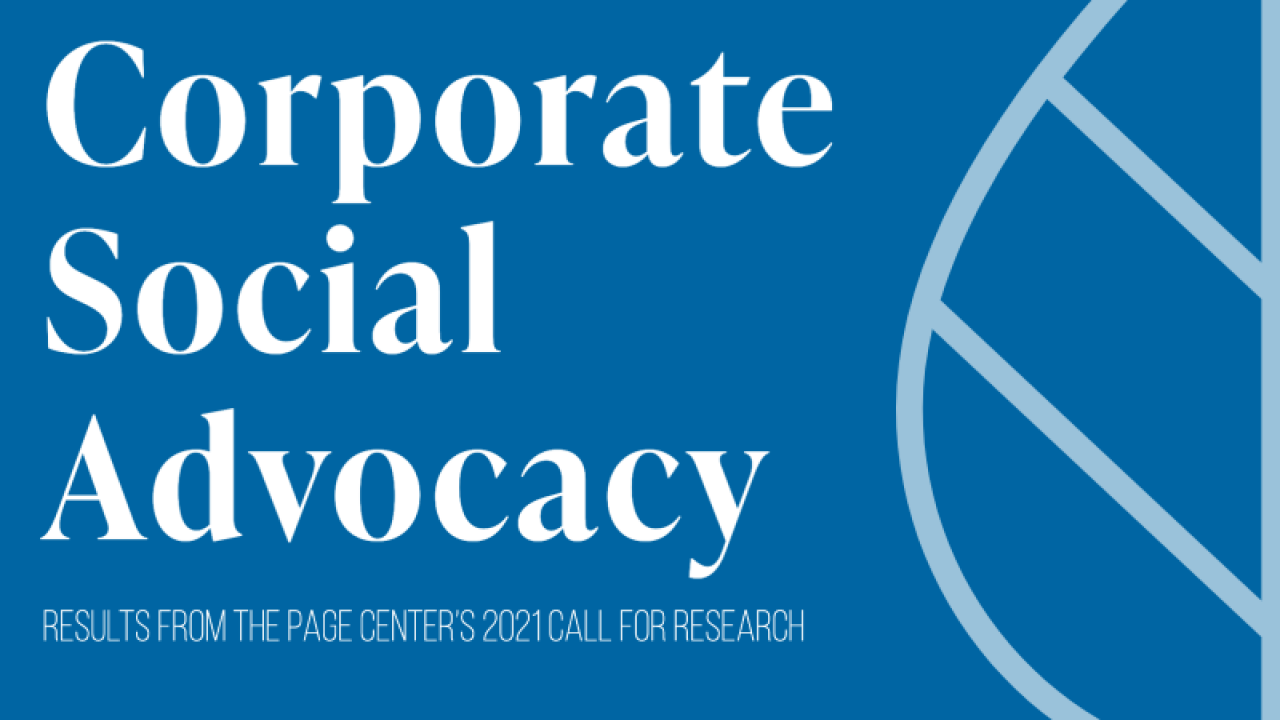March 20, 2023
Bolstering CSA efforts with authentic leadership and substantive action

By Nicole O’Donnell, Washington State University and Yanni Ma, Oregon State University
Consumers and employees are increasingly expecting CEOs to be change agents who publicly share their stances on controversial social and political issues (e.g., engaging in corporate social advocacy). However, reports from Edelman suggest that there is also a growing distrust in corporations trying to improve their image without making real change, making authentic communication crucial for brand success.
Our research team, supported by the Page Center, conducted a study to examine the factors that enhance authenticity perceptions of CEOs and their companies' corporate social advocacy brand promises.
When a company publicly supports a cause through corporate social advocacy, it is effectively making a promise to consumers by telling them that their support of the brand, or their purchase of its products, will help advance the cause.
In our study, we looked at the factors that may make consumers view a company’s advocacy as authentic. First, we analyzed four types of brand promises in the context of promoting environmental justice — symbolic, philanthropic, experiential and explicit. These promises included:
1) Symbolizing support through social media posts
2) Donating a percentage of sales as philanthropic support
3) Providing consumers with an experiential way to contribute by rounding up their purchases
4) Making explicit commitments through substantive policy action
In addition, we also analyzed the framing of CEOs’ values as consistent or inconsistent with environmental justice, along with consumers’ own justice perceptions.
Here are some of our key takeaways from our research:
► As expected, when participants viewed messages from CEOs who held similar values as the advocacy initiatives, the authenticity perceptions were higher.
► Promising substantive action was seen as most authentic, especially when presented with a leader with similar values.
► Consumers had varied perceptions of rounding up their purchase price, with those who had a higher personal belief in social justice rating it as more authentic.
Overall, viewing corporate social advocacy communication as authentic directly led to consumers’ purchase intentions. In the past, we’ve shared how environmental justice advocacy is good for business. Through this study, we support that consumers judge a company's authenticity through its corporate social advocacy initiatives and it's crucial for brand leaders to be transparent with their values.
By doing so, they can build strong relationships with their customers and accordingly support causes congruent with corporate values. Our research team is in the process of publishing the full results from this research and we are happy to chat with those interested in learning more. Email us at nicole.odonnell@wsu.edu.
This research was funded by a 2021 Page/Johnson Legacy Scholar Grant from a call for proposals on corporate social advocacy.
